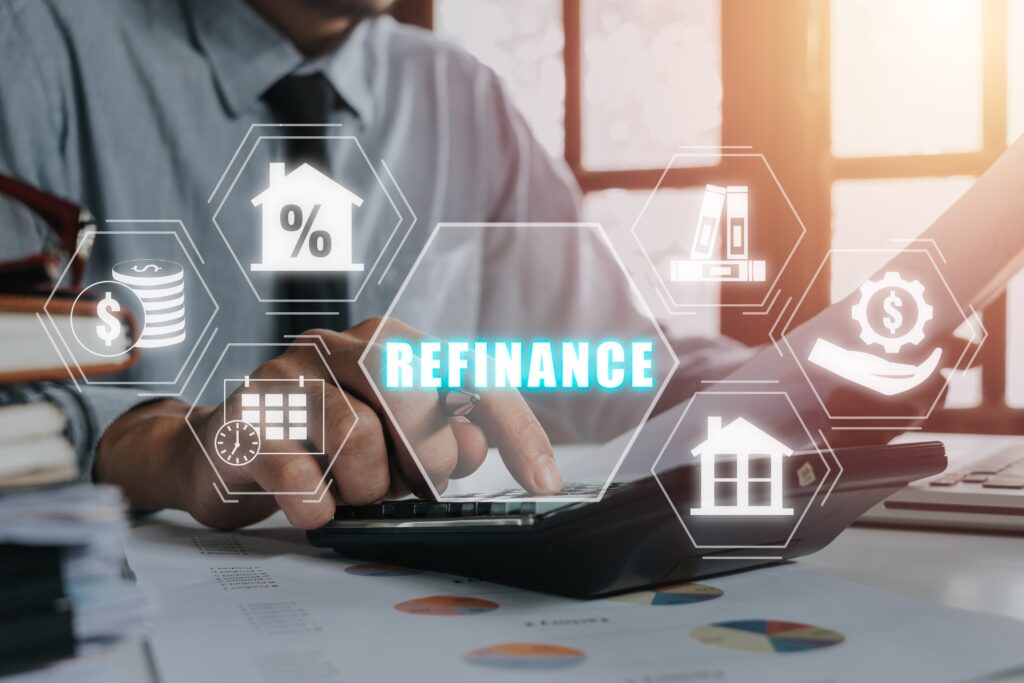
Refinancing your home mortgage can seem like a daunting endeavor, especially if you’re not familiar with the process. However, under the right circumstances, it can be an excellent financial decision, potentially saving you money or making your debt more manageable. This comprehensive guide will help you understand when and why refinancing your home might be a good idea.
What is Refinancing?
Refinancing involves replacing your existing mortgage with a new one. This new mortgage typically has different terms, which might include a lower interest rate, a different type of loan, or a changed loan duration. The process involves similar steps as getting your original mortgage, including a credit check, an appraisal, and closing costs.
When Does Refinancing Make Sense?
Here are several scenarios where refinancing could be beneficial:
- Lower Interest Rates
One of the most common reasons to refinance is to take advantage of lower interest rates. Reducing your interest rate not only lowers your monthly payments but can also significantly reduce the total amount of interest you pay over the life of your loan. A general rule of thumb is that it makes sense to refinance if you can lower your interest rate by at least 1%. - Shortening the Loan Term
If interest rates drop, you might have the opportunity to refinance an existing longer-term mortgage into a shorter-term mortgage without much change in your monthly payment. This can save you money on interest and allow you to pay off your home sooner. - Converting Between Adjustable-Rate and Fixed-Rate Mortgages
If you originally chose an adjustable-rate mortgage (ARM) and the initial fixed-rate period is about to end, switching to a fixed-rate mortgage through refinancing can protect you from potentially higher future rates. Conversely, if rates have fallen since you took out a fixed-rate mortgage, converting to an ARM might lower your payments. - Tapping into Home Equity
Cash-out refinancing allows you to refinance for more than you owe on the current mortgage and get the difference in cash. This can be useful for consolidating debt, home improvements, or other significant expenses. However, this increases the amount you owe and possibly your payment period, so it should be considered carefully. - Removing Private Mortgage Insurance (PMI)
If your original down payment was less than 20%, you’re likely paying PMI. If your home has appreciated in value or you’ve paid down a significant amount of your mortgage, refinancing might help you remove PMI if you now hold 20% equity in your home, reducing your monthly payments.
Why Refinance?
- Save Money on Interest
As mentioned, securing a lower interest rate can save you a substantial amount in the long run. This is often the primary motivation behind refinancing, especially for those who secured their original loans at a time when interest rates were high. - Adjust Monthly Budget
Refinancing can either lower your monthly payments, freeing up cash for other expenses or investments, or allow you to pay more towards the principal each month, thus paying off your loan sooner and potentially saving on interest. - Debt Consolidation
By using a cash-out refinance, you can consolidate high-interest debts (like credit card debt) under a lower home loan rate, simplifying your payments and reducing the amount paid on interest. - Switch Loan Types
For those whose financial stability or outlook has changed, switching from an ARM to a fixed-rate loan can provide more predictability and security, or vice versa.
Considerations Before Refinancing
- Cost of Refinancing
Just like with your original mortgage, refinancing involves fees and costs, typically 2-6% of the loan amount. Weigh these costs against the potential savings or benefits from refinancing to determine if it’s worth it. - Break-even Point
Calculate how long it will take for the monthly savings from refinancing to recoup the closing costs. This is your break-even point. If you plan to stay in your home past this point, refinancing might be a good decision. - Credit Score Impact
Since refinancing involves applying for a new loan, your credit score will be a factor in determining your new interest rate and terms. A higher credit score can lead to better rates, so consider taking steps to improve your credit score if needed before refinancing. - Future Plans
Consider your long-term housing plans. If you plan to move in a few years, you might not stay in your home long enough to reach the break-even point and benefit from refinancing.
Refinancing can be a strategic financial move depending on your current mortgage, the available interest rates, and your financial goals. By understanding the when and why behind refinancing, you can make an informed decision that aligns with your financial needs and lifestyle. Always consult with a financial advisor or mortgage expert to discuss your specific situation before making any decisions. With the right planning and consideration, refinancing your home can be a smart way to restructure your mortgage and improve your financial health.
Unlock Full Article
Watch a quick video to get instant access.








